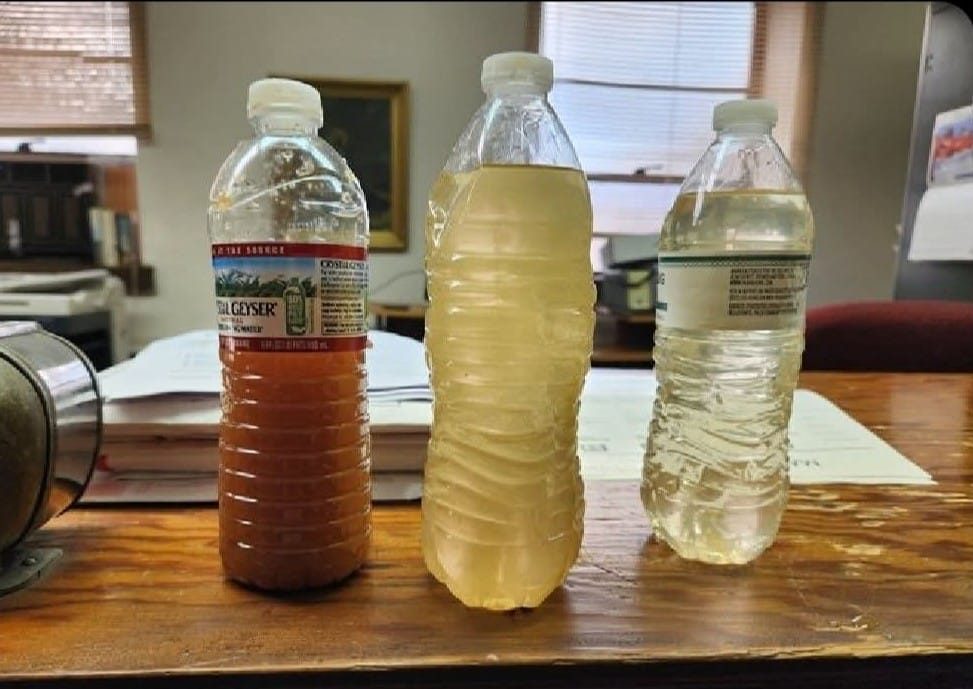Home Grown: Appalachia’s Farmers Build Community
Story by Julie Johnson
As locally produced foods gain popularity, Appalachia’s family farmers help create a supportive system of community services to reclaim the marketplace.
Sprouting a Small Farm
“In this region, where people have always relied on self-sufficiency, agriculture is about making a job,” said Martin Richards, a former farmer and current Economic Development Organizer for Kentuckians for the Commonwealth.
Faced with dwindling job markets in industry and manufacturing, enterprising Appalachians are again turning to agriculture for income. To do this independently, as opposed to contract farming for a large industrial operation, a farmer faces many challenges. The climate and geography of the steep slopes and hollows present a unique challenge to the region’s farmers. “Having a small or steep field definitely puts constraints on the type of equipment that can be used, “ said Richard Boylan, an Ashe County, N.C. farmer and agricultural agent for the Watauga County, N.C. Cooperative Extension Service.
“The short growing season can be challenging,” Boylan said, “but also provides growers in this area with a huge opportunity to produce cool season crops far earlier than other regions.” Offering crops like broccoli and lettuces in late August allows Appalachian farmers a competitive edge.
“Permaculture design teaches us to take each challenge and find the opportunity in it,” said Boylan. Farmers that can adapt to Appalachia’s challenging landscape can produce unique crops that thrive in mountainous conditions.
At Upper Mountain Research Station in Ashe County, N.C., crop researchers have hybridized a strawberry called “day neutral.” This crop is unique to high elevations, and continues to fruit throughout the summer, as long as temperatures stay below 90 degrees. For farmers in Appalachia, this means the ability to offer vine-fresh berries long after lowland producers.
Making it to Market
Once a farmer begins production, finding a niche in the marketplace can be difficult. Competing with the low prices of mass-produced goods is extremely difficult for an independent farmer trying to make a profit.
“The small farmer has always had to be a jack of all trades,” said Johnson County, Tenn. farmer Tommy Culver. “I don’t know if anyone’s ever been able to make a living just on farming; you have to be creative and have something to fall back on in case your crop fails.”
Culver, who also brings in income making musical instruments, is growing heirloom tomatoes and is experimentally cultivating hops. “I found out that my soil was particularly acidic, and those two crops thrive in it.”
Understanding soil quality and knowing what to grow and when can be a daunting challenge for a green farmer.
Research farms and county-run agriculture extension offices provide farmers with valuable resources to overcome farming obstacles. Many offer soil quality testing. Often farmers can attend workshops that teach a variety of techniques, or networking events that connect farmers to chefs and restaurateurs.
“We’ve taught everything from making hoop houses for season extension to canning and preserving to making solar-powered dehydrators,” said Brooke Kornengay, manager of the Goodnight Family Endowment sustainable development research farm in Valle Crucis, N.C., part of the Appalachian State University system.
“Because these services are subsidized by the state, we don’t have worry about making a profit,” said Kornengay. “We’re just here to support the community.”
“We’re still trying to create networks for Eastern Kentucky farmers,” said Richards. A recent weekend of workshops hosted by Kentuckians for the Commonwealth members in Floyd County brought out farmers interested in improving their marketing skills and sharing information.
“In our region, the imposed quotas set by the tobacco industry eliminated the need for a farmer’s marketing skills,” said Martin. “The workshops are aimed at making farmers independent marketers as well as producers.” Participants learned how to set up an eye-catching table at market, and how to work with restaurateurs and cooperative wholesalers.
Farmer’s markets are an obvious choice for many, but they require a strong organizer and an easily accessible, central location. There is no middleman between farmer and consumer, but the farmer’s profit can vary strongly from week to week.
The schedule can also be rigorous for a farmer that has already worked in the fields all week. “Sometimes you just get tired of waking up at 4 a.m. every Saturday,” said Boylan. “However, it’s a great place to connect customer to farmer and those connections are very important.”
Creating community
Regardless of the method or market, “agriculture creates community,” said Kornengay. Farming communities have long fostered neighborly bonds to help plant, produce and harvest one another’s yields.
Mike Hindman, a Butler, Tenn. alpaca farmer, said that he lets a neighbor down the road cut and use the hay from one of his emptier fields. “I got the field, and more hay than I need for my animals and I don’t want to keep it cut all the time,” he said.
“No money changes hands, we just help each other out and we both benefit.”
Increasing the number of farmers in an area also increases demand for equipment sellers, supply shops and livestock veterinarians. Area restaurants also benefit from a steady supply of fresh meat and produce that they can order practically on demand, without having to sacrifice quality to cross- country shipments.
The Watauga County, N.C. Agriculture Extension Service is hosting a chef-to-farm field trip this June. “We want to get chefs and farmers together so they can see what’s growing and what’s cooking,” said Boylan. “Making personal connections helps strike up business opportunities for both.”
“We want to create a better knowledge base on who has resources, and spark discussions with farmers, consumers and restaurateurs to find out how we can all strengthen community relationships,” said Kornengay.
“At the core of it, being a farmer is about feeding people. The farmer is really a community philanthropist,” said Culver.
Related Articles
Latest News

Leave a comment
Your email address will not be published. Required fields are marked *





Leave a Comment